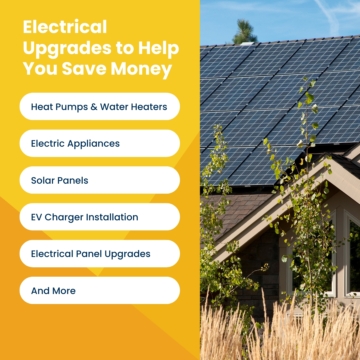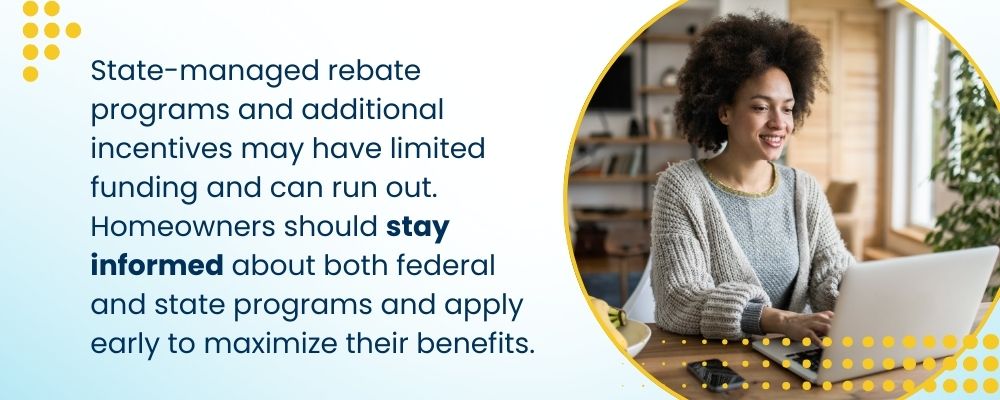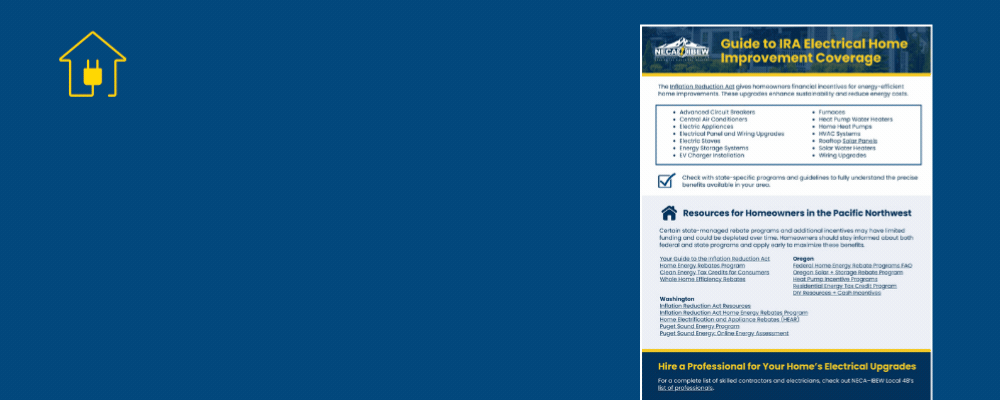Lower Home Energy Bills: How You Can Use the Inflation Reduction Act (IRA)
If you are a homeowner, the Inflation Reduction Act (IRA) can help you save money through rebates and tax credits. Energy-efficient upgrades—from heat pumps to solar panels and more—can reduce energy costs, promote sustainable living, and put money in your pocket.
Want to learn more about long-term financial savings and maximizing home energy use through the IRA? Read on for all the details.
What is the Inflation Reduction Act?
According to the Office of Energy and Equity, low-income communities pay 30% of their overall earnings towards energy costs. The Inflation Reduction Act aims to ease some burdens by allocating $8.8 billion to home energy rebate programs. For homeowners in the Pacific Northwest, there are plenty of ways to take advantage of these federal rebates and upgrade your home to be more energy efficient.
How to Take Advantage of the Inflation Reduction Act & Save on Energy Costs
The IRA allows for rebates and tax credits through 2032, which gives homeowners plenty of time to make gather paperwork, complete applications, and schedule necessary upgrades.
Home energy savings through the IRA include Energy Efficient Home Improvement Credits and Home Electrification and Appliance Rebates. Participating in specific home improvement projects allows you to receive financial benefits and can help lower your energy costs over time.
Tax Credits vs. Rebates
There are two ways that homeowners can take advantage of the Inflation Reduction Act: tax credits and rebates. Knowing the difference is crucial to ensure you get the most out of your savings.
- Tax Credits: These credits will be applied when you file your taxes and will reduce the overall amount of taxes due. However, be aware that additional refunds will only be issued if your credits are within the taxes owed.
- Rebates: Rebates are instant savings and offset the purchase of a particular appliance or equipment. Rebates don’t have any impact on taxes.
Electrical Upgrades for Homes
Rebates in Washington and Oregon allow home and property owners the ability to shave upfront costs.
These are just a few of the many upgrades you can make to start saving money:
- Heat Pump Installation: Electrical heat pumps require minimal energy to transfer heat from one place to another. Since they don’t generate heat, they are more eco-friendly. They can replace everything from gas-burning furnaces to air conditioners.
- Heat Pump Water Heaters: These types of water heaters can be two to three times more energy efficient than other current types.
- Electric Stoves: Recently, there has been much discussion about the difference between gas and electric stoves. Older gas stoves have been considered risky due to their benzene and methane emissions. However, beyond that, gas stoves can be half as energy efficient as electric. Switching out a gas stove for an electric one gives homeowners access to rebates.
- Solar Panels: Rooftop solar panels can promote energy independence and lower electricity bills. The IRA offers tax credits for residential installation.
- Electrical Panel and Wiring Upgrades: An updated breaker and new wiring can significantly improve residential energy efficiency and support modern appliances.
Do You Qualify for IRA Rebates & Tax Credits?
You can receive IRA benefits as long as you are aware of a few rules. New equipment installations must adhere to specific efficiency standards. Check with the IRS to ensure your upgrades meet the criteria or visit Energy.gov for more information and resources to get started.
Find an Electrical Professional for Your Home Improvements
The Inflation Reduction Act is an excellent opportunity for homeowners to save money and participate in an energy-efficient future. To ensure you are compliant with all your electrical upgrades and installments, it’s essential to seek out skilled electricians and contractors in your area.

Are you looking for a local electrician or contractor? Check out our list of top electrical professionals in your area.




